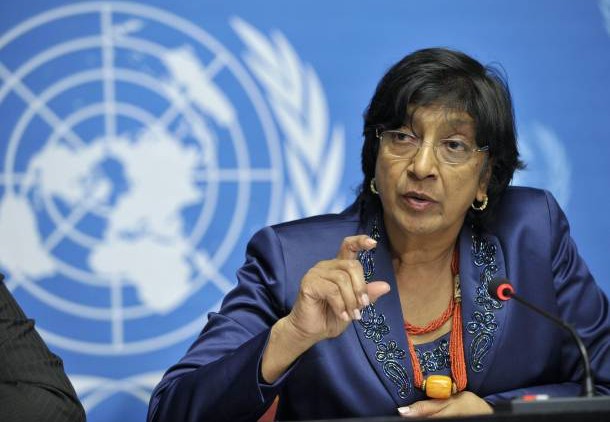The Twenty Fifth Session of the United Nations Human Rights Council commenced on March 3, 2014 in Geneva, Switzerland. While the worsening human rights situation in a number of countries, including Syria, Ukraine and Venezuela, is of great concern to the Council and Canada, Sri Lankan Canadians are also closely observing draft resolution HRC 25/1 (revised) promoting reconciliation, accountability, and human rights in Sri Lanka, which will be voted on by the Council tomorrow, March 27, 2014.
In her 2013 special report on Sri Lanka (A/HRC/22/38), the UN High Commissioner for Human Rights, Navi Pillay, re-affirmed “her long-standing call for an independent and credible international investigation into alleged violations of international human rights and humanitarian law, which could also monitor any domestic accountability process.” While the inclusion of language in the current draft calling for such an investigation is a positive development, it is hoped that the resolution can be furthered strengthened before the important vote.
While the Government of Sri Lanka’s efforts in infrastructure development, de-mining, and returning most of the Tamils and Muslims internally displaced by the armed conflict to their areas of origin are commendable, it is clear that the Government of Sri Lanka has made little, if any, progress in addressing several key areas of concern including but not limited to the rule of law and administration of justice, extrajudicial killings, missing persons and enforced disappearances, sexual violence, powers of arrest and detention policies, land issues, demilitarization, economic disparity, ongoing needs of re-settled internally displaced persons, the disempowered Northern Provincial Council, right to freedom of opinion and expression, and reparation for all victims of the armed conflict. In this context, it is evident that a credible and independent international investigation is urgently needed to strengthen the design, implementation and evaluation of any meaningful reconciliation and accountability process for Sri Lanka.
An international mechanism has become critical given the Government of Sri Lanka’s failure to adopt many of the far-reaching recommendations of its own Lessons Learnt and Reconciliation Commission. Indeed, any domestic space within Sri Lanka for undertaking efforts towards achieving meaningful reconciliation and accountability since the end of the armed conflict in 2009 only continues to shrink at an alarming rate. This is underscored by the recent detention of human rights activists Ruki Fernando, Fr. Praveen Mahesan and Jeyakumari Balendran as well as the detention of Tharmila Balaguruparan and Nitharsana even as the current Council is in session. It is critical, therefore, that the co-sponsors continue revising HRC 25/1 and include stronger language that fully supports all the recommendations made in A/HRC/22/38 including the establishment of an independent and credible international investigation into war crimes and crimes against humanity that will hold all perpetrators accountable through due process, including members of the Government of Sri Lanka, the Liberation Tigers of Tamil Eelam, paramilitary groups and others.
 It is increasingly apparent that a tougher resolution at this critical juncture will help bring about reparation for Tamils in the North and East of Sri Lanka who continue to suffer the injustices of the conflict even though the war may have ended. This is of paramount importance as the rights of the Tamil people in the North and East of Sri Lanka are inextricably tied to the rights of all Sri Lankans, be they Muslims or Christians or of any ethnicity, religion, gender, class, caste, creed, religion or sexual orientation, to live freely and equitably in a peaceful and just Sri Lanka.
It is increasingly apparent that a tougher resolution at this critical juncture will help bring about reparation for Tamils in the North and East of Sri Lanka who continue to suffer the injustices of the conflict even though the war may have ended. This is of paramount importance as the rights of the Tamil people in the North and East of Sri Lanka are inextricably tied to the rights of all Sri Lankans, be they Muslims or Christians or of any ethnicity, religion, gender, class, caste, creed, religion or sexual orientation, to live freely and equitably in a peaceful and just Sri Lanka.
When the Council votes on Sri Lanka tomorrow, it is as much a vote on the country’s past as it is a vote on its future.

 Kumaran Nadesan
Kumaran Nadesan









